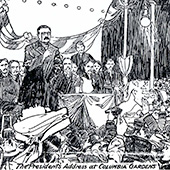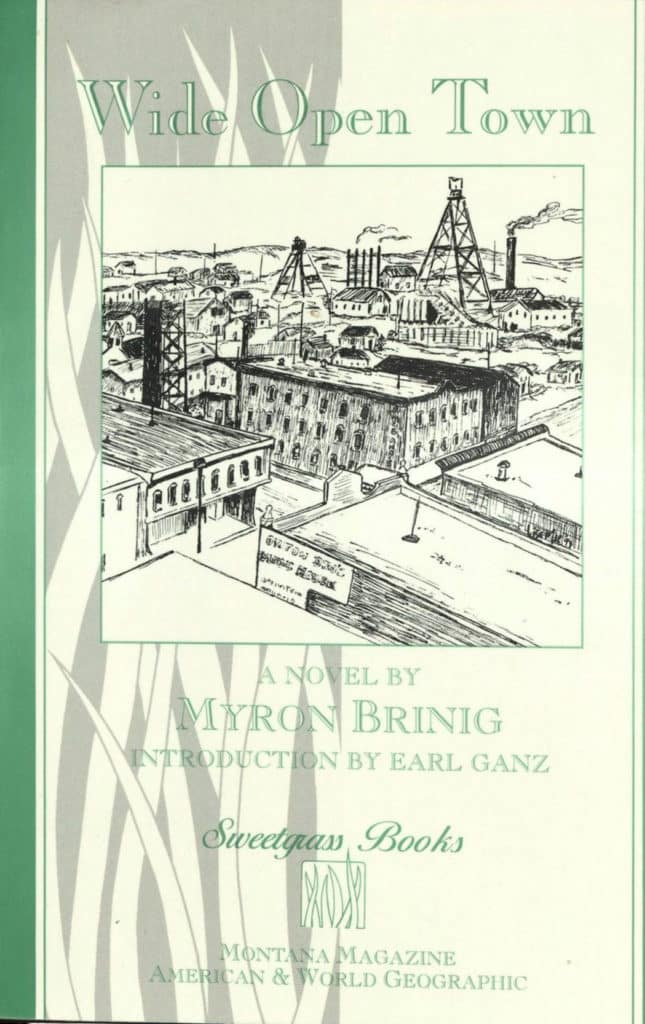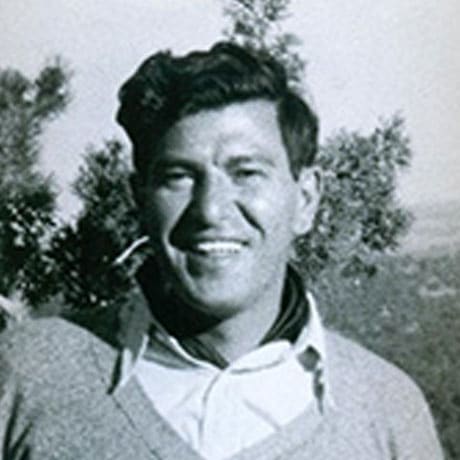Butte Oldtimers Handbook, courtesy of the Butte-Silver Bow Public Archives

Wide Open Town: President Roosevelt speaks in the ballpark
That evening the whole town turned out at the ball-park to hear Mr. Roosevelt speak on “Conditions.” Miners and their wives and children, all dressed in their finest; farmers in their broadcloths and farmers’ wives in their ginghams and sateens, drove into town in wagons and buggies. They looked like finicky families of birds high on their seats behind the swishing tails of horses. In all the faces of the crowd was an inexpressible awe and wonder. The plains roundabout and the sky above held something of the same magic quality. (71)
Brinig, Myron. Wide Open Town. Helena, MT: Farcounty Press, 1993.

About the Book
Wide Open Town
First published in 1931, Wide Open Town is one of Brinig’s most beloved works. The story takes place in Butte (fictionalized as Silver Bow) in 1910, and features John Donnelly, an Irish immigrant fond of fresh air and ocean breezes who labors deep in the town’s dark mines, and Zola, the love of his life, who works the dark side of town until she tries to enter John’s world.
Many thanks to Ellen Crain and Aubrey Jaap at the Butte-Silver Bow Public Archives for their assistance in curating the Wide Open Town literary map.
While the settings in Wide Open Town clearly reference actual locales, it is understood that the book—including its places—is ultimately the product of the author’s imagination. The intent of this literary map is to enrich the reading experience by interpreting those places, not to render them literally or definitively.

About the Author
Myron Brinig
Born in 1896 to Romanian parents, Myron Brinig was raised from a young age in Butte, Montana. Brinig published his first novel—Madonna Without Child—in 1929, and would go on to publish another twenty novels over the next three decades, including Singermann (1929), Wide Open Town (1931), This Man Is My Brother (1932), and The Sun Sets in the West (1935)—all of which depict miners, labor organizers, farmers, and businessmen settling and developing Montana. During his early career Brinig was praised by critics and lauded as one of the leading young writers in America.
One of Brinig’s best-selling novels, The Sisters, was adapted into a feature length film in 1938, starring Bette Davis and Errol Flynn.
